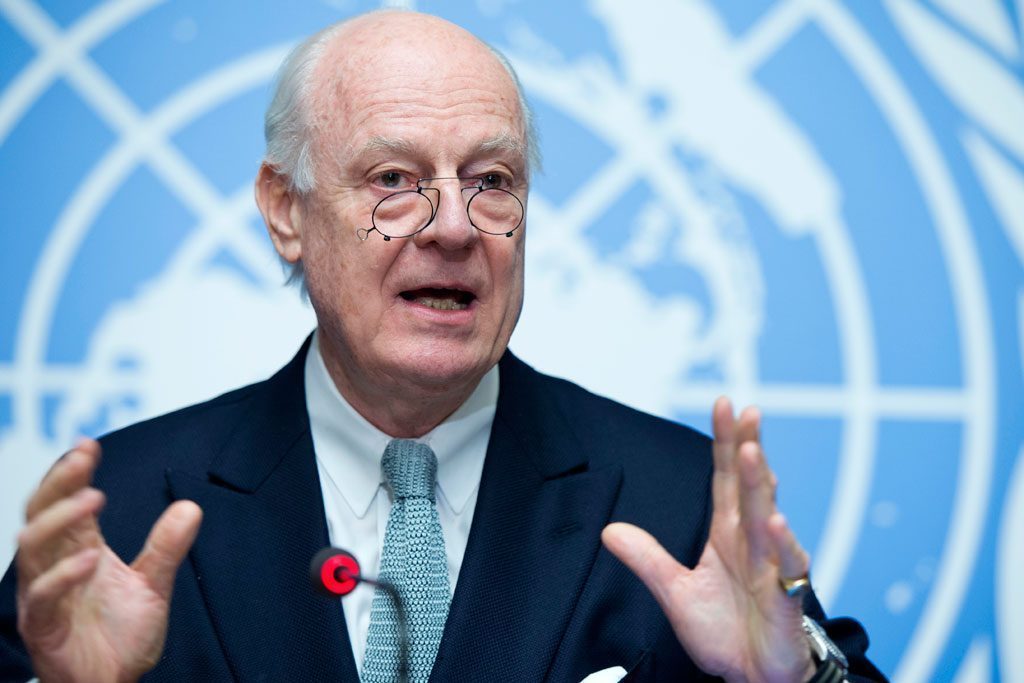
The United States and Russia hailed a breakthrough deal on Saturday to put Syria’s peace process back on track while Syrian political opposition and UN welcomed the agreement.
The deal, agreed upon by US Secretary of State John Kerry and Russian Foreign Minister Sergey Lavrov, aims at halting fighting in Syria and moving towards a political transition after over five years of combat between President Bashar al-Assad’s forces and opposition rebels.
“Today, Sergei Lavrov and I, on behalf of our president and our countries call on every Syrian stakeholder to support the plan that the United States and Russia have reached, to … bring this catastrophic conflict to the quickest possible end through a political process,” US Secretary of State John Kerry said.
The High Negotiations Committee, an umbrella group of the Syrian opposition, on Saturday welcomed the deal, saying it hoped it would bring relief to hundreds of thousands civilians.
“We hope this will be the beginning of the end of the civilians’ ordeal,” said Bassma Kodmani, a spokeswoman for the High Negotiations Committee.
“We welcome the deal if it is going to be enforced.”
“A violation by the regime should be met with a perhaps military response. That is what makes it credible, really,” said Bassma Kodmani.
“If we we have a credible line of cessation of hostilities, then we can look to moderate groups in the opposition to disassociate themselves from extremists.”
The UN‘s Syria envoy Staffan de Mistura described the deal as a “window of opportunity”, and said he would discuss with UN Secretary General Ban Ki-moon when stalled political negotiations can restart.
Turkey welcomed the plan, and said aid needed to reach those in need “from the first day”
EU foreign policy chief Federica Mogherini urged the UN to “prepare a proposal for political transition” in Syria
British Foreign Secretary Boris Johnson urged Russia to “use all its influence” to ensure the Syrian government “delivers on its obligations”
Read more: US and Russia reach a Syria’s ceasefire deal
What the agreement includes
A nationwide ceasefire by Assad’s forces and the US-backed opposition is set to begin across Syria at sundown on Monday.
That sets off a seven-day period that will allow for humanitarian aid and civilian traffic into Aleppo, Syria’s largest city, which has faced a recent onslaught.
Fighting forces are to also pull back from the Castello Road, a key thoroughfare and access route into Aleppo, and create a “demilitarised zone” around it.
Also on Monday, the US and Russia will begin preparations for the creation of a Joint Implementation Centre that will involve information sharing needed to define areas controlled by the Jabhat Fateh al-Sham group (formerly known as al-Nusra Front) and opposition groups in areas “of active hostilities”.
The centre is expected to be established a week later, and is to launch a broader effort towards delineating other territories in control of various groups.
As part of the arrangement, Russia is expected to keep Syrian air force planes from bombing areas controlled by the opposition. The US has committed to help weaken Jabhat Fateh al-Sham, an al-Qaeda affiliate in Syria that has intermingled with the US-backed opposition in several places.
A resumption of political dialogue between the government and opposition under UN mediation, which was halted amid an upsurge in fighting in April, will be sought over the longer term.
The Syrian crisis began as a peaceful demonstration against the injustice in Syria. Assad regime used to fire power and violence against the civilians and led to armed resistance. 450.000 Syrians lost their lives in the past five years according to UN estimates, and more than 12 million have lost their homes.



